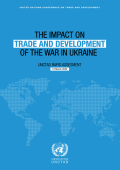Browse by:
Type
Sector
Country
- Afghanistan (1)
- Albania (1)
- Antigua and Barbuda (2)
- Argentina (1)
- Australia (4)
- Austria (3)
- Bahamas (3)
- Bahrain (2)
- Bangladesh (6)
- Barbados (2)
- Belgium (2)
- Belize (5)
- Benin (3)
- Bhutan (4)
- Bolivia (3)
- Bosnia and Herzegovina (1)
- Botswana (5)
- Brazil (14)
- Bulgaria (1)
- Burkina Faso (1)
- Cabo Verde (2)
- Cambodia (8)
- Cameroon (4)
- Canada (24)
- Central African Republic (1)
- Chad (1)
- Chile (3)
- China (27)
- Colombia (10)
- Congo (2)
- Cook Islands (5)
- Costa Rica (12)
- Cuba (1)
- Cyprus (1)
- Czech Republic (3)
- Democratic Republic of the Congo (3)
- Denmark (8)
- Dominican Republic (2)
- Ecuador (5)
- Egypt (3)
- El Salvador (1)
- Equatorial Guinea (1)
- Ethiopia (8)
- Federated States of Micronesia (7)
- Fiji (8)
- Finland (9)
- France (9)
- Gabon (1)
- Gambia (2)
- Georgia (2)
- Germany (10)
- Ghana (10)
- Global (1)
- Greece (2)
- Grenada (2)
- Guatemala (1)
- Guyana (1)
- Haiti (3)
- Honduras (3)
- Hungary (2)
- Iceland (4)
- India (31)
- Indonesia (27)
- Iran (1)
- Ireland (2)
- Italy (11)
- Jamaica (3)
- Japan (11)
- Jordan (5)
- Kazakhstan (5)
- Kenya (20)
- Kiribati (5)
- Kosovo * (1)
- Kyrgyzstan (4)
- Lao (7)
- Latvia (1)
- Lebanon (2)
- Lesotho (1)
- Liberia (2)
- Madagascar (6)
- Malawi (3)
- Malaysia (7)
- Maldives (7)
- Mali (4)
- Marshall Islands (6)
- Mauritania (2)
- Mauritius (3)
- Mexico (13)
- Moldova (1)
- Mongolia (7)
- Montenegro (2)
- Morocco (6)
- Mozambique (5)
- Myanmar (8)
- Namibia (4)
- Nauru (4)
- Nepal (12)
- Netherlands (10)
- New Zealand (5)
- Niger (1)
- Nigeria (3)
- Niue (6)
- North Macedonia (1)
- Norway (8)
- Pakistan (4)
- Palau (5)
- Papua New Guinea (6)
- Peru (7)
- Philippines (22)
- Portugal (1)
- Qatar (1)
- Republic of Korea (14)
- Republic of Moldova (1)
- Romania (2)
- Rwanda (3)
- Saint Kitts and Nevis (3)
- Saint Lucia (8)
- Saint Vincent and the Grenadines (1)
- Samoa (9)
- Saudi Arabia (1)
- Senegal (5)
- Serbia (2)
- Seychelles (1)
- Sierra Leone (3)
- Singapore (2)
- Slovakia (1)
- Slovenia (1)
- Solomon Islands (5)
- South Africa (10)
- Spain (2)
- Sri Lanka (7)
- Sudan (1)
- Suriname (4)
- Sweden (9)
- Switzerland (2)
- Tajikistan (3)
- Tanzania (11)
- Thailand (13)
- Timor-Leste (4)
- Togo (1)
- Tonga (2)
- Trinidad and Tobago (7)
- Tunisia (4)
- Türkiye (1)
- Turkmenistan (2)
- Tuvalu (4)
- Uganda (14)
- Ukraine (4)
- United Arab Emirates (1)
- United Kingdom of Great Britain and Northern Ireland (15)
- United States of America (24)
- Uruguay (1)
- Uzbekistan (7)
- Vanuatu (8)
- Viet Nam (16)
- Zambia (6)
- Zimbabwe (3)
Region
Theme
- Climate Change (249)
- Natural Capital (203)
- Development (120)
- Institutions and Governance (94)
- Indicators and Measurement (89)
- Circular Economy (75)
- Cities (73)
- Infrastructure (69)
- Risk and Resilience (53)
- Technology and Innovation (37)
- Consumption (31)
- Investment (30)
- Poverty and Equity (29)
- Standards and Regulations (28)
- Gender (26)
- Market Mechanisms (23)
- COVID-19 (20)
- Jobs (20)
- Fiscal Instruments (18)
- Trade and Supply Chains (15)
- Health (9)
- Government Procurement (8)
- Sustainable, Green, and Social Bonds (3)
The Clean Development Mechanism (CDM) was created under the Kyoto Protocol to enable developing countries to sell carbon credits to developed countries. According to this ‘Inside story on climate compatible development’ by the Climate and Development Knowledge Network, China’s extraordinary embrace of the market opportunities afforded by the CDM has provided the country with valuable experience in carbon markets, allowing it to develop and test appropriate systems. This brief notes that China was initially considered ‘slow off the mark’ in engaging with the CDM, although the country now dominates the CDM market with almost half of all CDM projects hosted in China. Moreover, climate change action is becoming mainstream; carbon intensity reduction goals have been included in the most recent 5-year plan and a nationwide emissions trading scheme is also due to begin operating in 2015.
This summary was prepared by Eldis.
Related Case Studies
China’s energy demand has been growing at breathtaking pace putting pressure on the security of the country’s electricity supply, 70 per cent of which is based on coal. This ‘Inside story on climate compatible development’ by the Climate and Development Knowledge Network shows that the Chinese government is increasingly looking...
In late 2009, Indonesia made a voluntary commitment to reduce its greenhouse gas emissions by 26 per cent by 2020, or by 41 per cent with international assistance, compared to business as usual. The country aims to achieve 87 per cent of this goal by reducing emissions from deforestation and...


Our decreasing forest landscapes are under huge pressure to deliver local and global needs, from a village’s food and firewood to mitigating climate change. With demand unlikely to fall, the key issue is how we extract what we need. Governments are faced with two contrasting business models: the profit-maximising, often...
